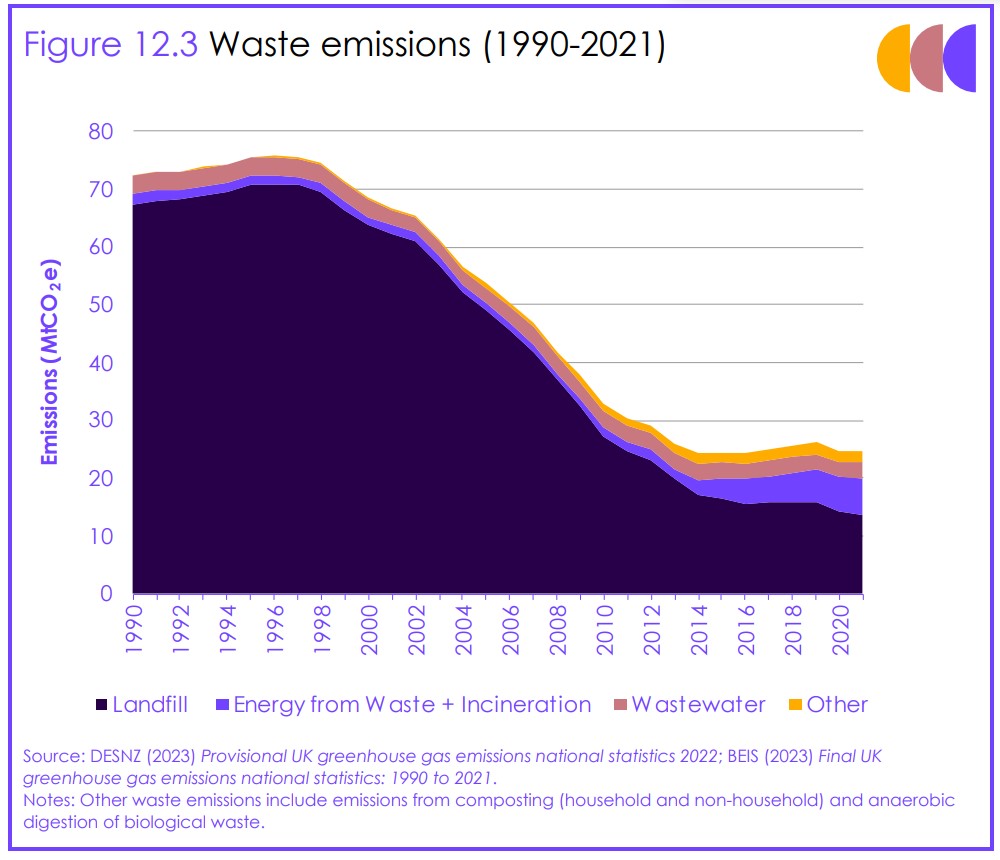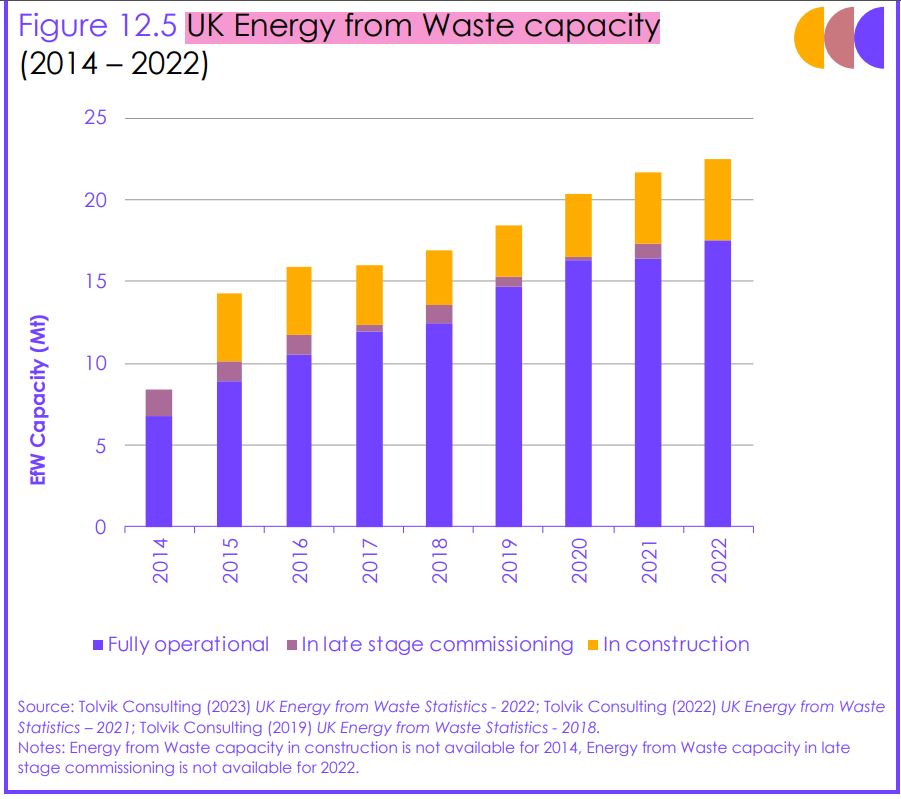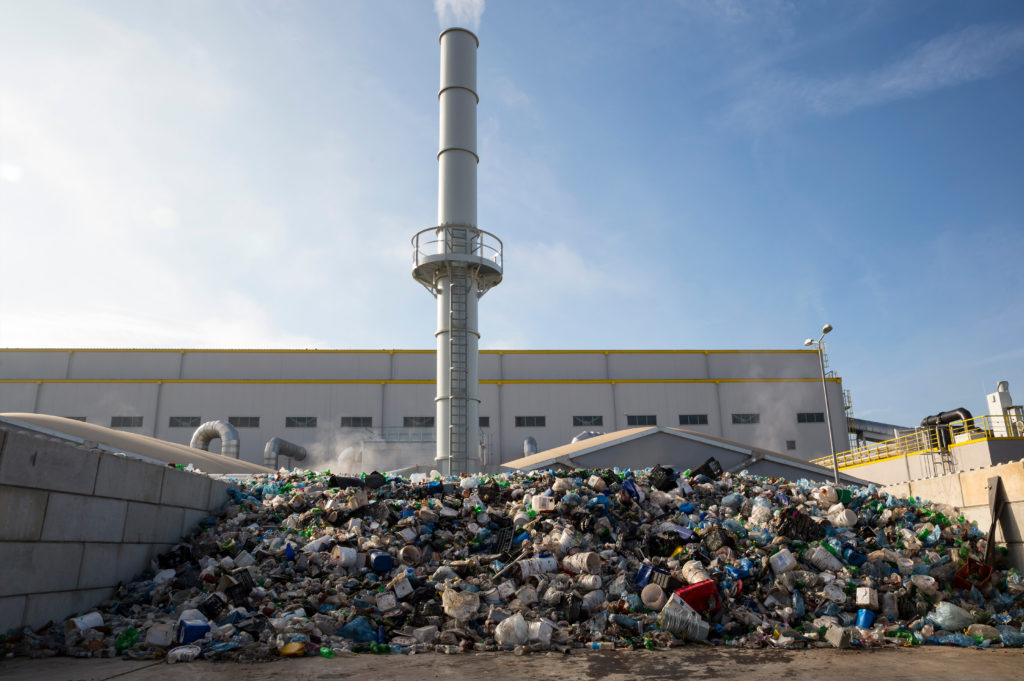The CCC’S annual report to parliament states that landfill emissions reduced by 5% between 2020 and 2021, which is line with the governments aims set out in its carbon budget delivery plan. However, the report warned that this was “masked” by a 5% rise in EfW emissions.
According to the report, the EfW sector has “witnessed substantial expansion” in recent years. Data from the report indicates that EfW capacity has “surged” from 8 million metric tonnes per year in 2014 to 23 million per year by 2022. This underscores the “increasing reliance on EfW as a sustainable waste management solution in the country.”
Based on the plants currently under construction, consultancy firm Tolvik predicts a further 18% growth in EfW capacity by 2027. This projection suggests that emissions from EfW are “likely to surpass the levels assumed in the government’s carbon budget delivery plan and continue to increase”.
The CCC emphasises the need for a “stronger approach to curtail further EfW emission increases”.

CCC
The CCC is an independent, statutory body established under the Climate Change Act 2008. It aims to provide advice to the UK and devolved governments regarding emissions targets and reports regularly to government.
The body has made no secret in the past of its concerns about energy from waste. In June last year, the body called upon the government to “justify the need for additional EfW plants.” This follows similar calls in 2021 (see letsrecycle story), where the body said “urgent action” was required.
‘Increasing Emissions’
The body called for a moratorium on additional EfW capacity until a thorough review of the required residual waste treatment capacity has been conducted.

Energy from waste is considered to have a lower environmental impact compared to landfill, but concerns have been raised by campaigners and some others that the UK is at capacity and calls for a moratorium have been growing in recent years.
Those in favour would argue that EfW generates electricity from residual waste and provides a better option than landfill or export.
Recycling
Away from EfW, the report examines how recycling rates in the UK have shown “limited progress at a national level”, with the overall rate reaching 44% in 2020.
However, the extent of progress varies significantly across nations, with Wales recording the highest rates at 56% and Scotland the lowest at 41%.
The group also warned that England Scotland and Northern Ireland are all “off track” to meet their recycling targets, while more legislation is needed in Wales.
It also notes “insufficient progress” being made in implementing effective policies within the waste sector, posing “significant risks to achieving emission reduction targets”. “This assessment remains largely unchanged from the CCC’s assessment last year,” the body said.
The CCC said improving England and Scotland’s “stalled recycling rates” is key to reducing dependence on EfW and landfill and said implementation of planned reforms to recycling and packaging “must not be delayed”.
While major reforms are anticipated in the waste sector in the coming years, a “more comprehensive and strategic approach is required”, focusing on waste reduction, reuse, and domestic recycling to lessen reliance on energy-from-waste facilities and minimise the disposal of biodegradable waste in landfills.
Recommendations
The CCC said “greater strategic coordination” of plans to decarbonise the waste sector is needed including much greater emphasis on waste prevention, clarity on future residual waste capacity needs, and the suitability of incentives and interactions with other sectors such as waste as a feedstock for Sustainable Aviation Fuels.
The group also said a comprehensive systems-approach to control and reduce EfW emissions is urgently needed, including clarity on carbon pricing.
The report also set out a string of recommendations to Defra including:
- Set the overdue targets set out in the Environment Act in a way that drives the delivery of emissions abatement from resource efficiency
- Publishing details and timelines on maximising resources in England
- Finalising the Waste Prevention Programme by setting out details on any additional actions needed to achieve the recycling and waste reduction targets
- Set ambitious post 2035 recycling targets and policy options to meet said targets
- Increasing investment to deliver long-term infrastructure needs
‘Early action’

Lord Deben, chairman of the Climate Change Committee, said: “The lesson of my ten years at the Climate Change Committee is that early action benefits the people of this country and helps us to meet the challenges of the coming decades more cheaply and more easily. Yet, even in these times of extraordinary fossil fuel prices, Government has been too slow to embrace cleaner, cheaper alternatives and too keen to support new production of coal, oil and gas.
“There is a worrying hesitancy by Ministers to lead the country to the next stage of Net Zero commitments. I urge the Government to regroup on Net Zero and commit to bolder delivery.
“This is a period when pace must be prioritised over perfection.”













Subscribe for free